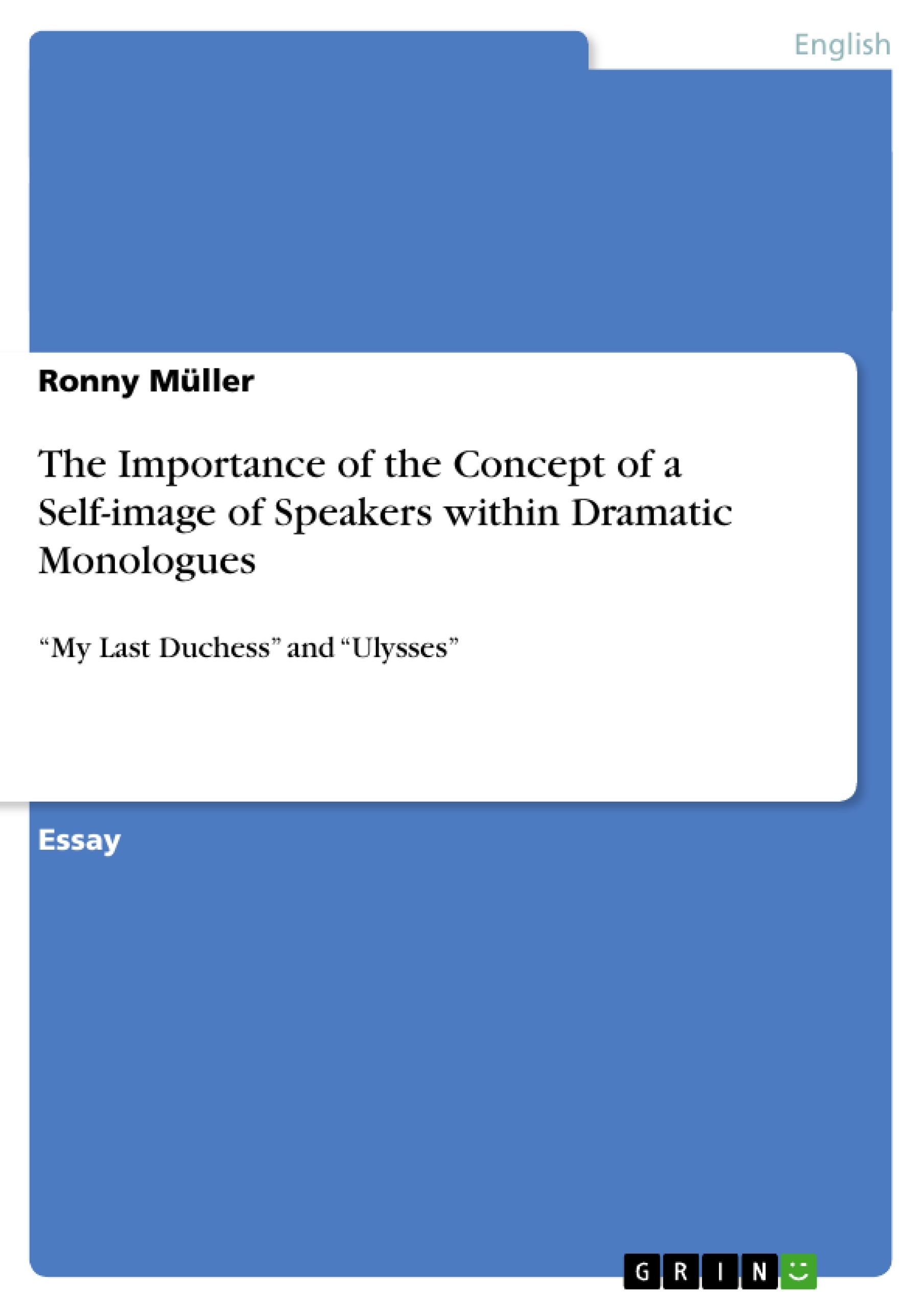Identity, imagination, thought, emotions and behavior all have an association with the term self-image. Every person possesses a self-image, but how important is this self-image for that person? What are the significant points to work with if we are speaking about self-image? How are self-images influenced by other people, and what can individuals do to influence their own self-images in such a way as to realize personal wishes.
The intention of this essay is to find answers for these questions within the dramatic monologues studied during the seminar.
In the course of this I make use of Robert Brownings "My Last Duchess" and Alfred Lord Tennyson's "Ulysses".
Table of Contents
- Introduction
- My Last Duchess
- Historical background in “My Last Duchess”
- The self-image of the speaker in \"My Last Duchess\"
- Ulysses
- A short look into “Ulysses” character
- The self-image of the speaker in “Ulysses”
- Conclusion
Objectives and Key Themes
This essay aims to explore the importance of self-image within dramatic monologues, particularly those of Robert Browning's "My Last Duchess" and Alfred Tennyson's "Ulysses." By examining the characters' self-perceptions and their influence on their actions, the essay will analyze how self-image shapes both individual identity and the dynamics of interpersonal relationships within these poems.
- The role of self-image in shaping individual identity and behavior.
- The impact of self-image on the speaker's interactions with others.
- The influence of historical context on self-image in dramatic monologues.
- The use of dramatic monologue as a literary tool for exploring self-image.
Chapter Summaries
The essay begins with an introduction that defines the concept of a dramatic monologue and its relevance to the exploration of self-image in poetry. The first chapter analyzes Browning's "My Last Duchess," delving into the historical background of the poem and the duke's self-image as it is revealed through his monologue. The chapter examines how the duke's self-perception as a man of power and authority influences his actions and relationships, particularly in his interactions with the envoy. It explores themes of control, manipulation, and the potential for misinterpretations of self-image.
The second chapter shifts focus to Tennyson's "Ulysses," briefly introducing the character and then delving into his self-image as expressed in the monologue. This chapter aims to reveal how Ulysses' self-perception as a restless and ambitious figure drives his quest for knowledge and exploration, highlighting the impact of self-image on individual aspirations and desires.
Keywords
This essay focuses on exploring the concept of self-image within dramatic monologues, specifically within the poems of Robert Browning's "My Last Duchess" and Alfred Tennyson's "Ulysses." The main keywords and concepts explored are self-image, identity, dramatic monologue, control, manipulation, historical context, and ambition.
- Quote paper
- Ronny Müller (Author), 2011, The Importance of the Concept of a Self-image of Speakers within Dramatic Monologues , Munich, GRIN Verlag, https://www.grin.com/document/180604




